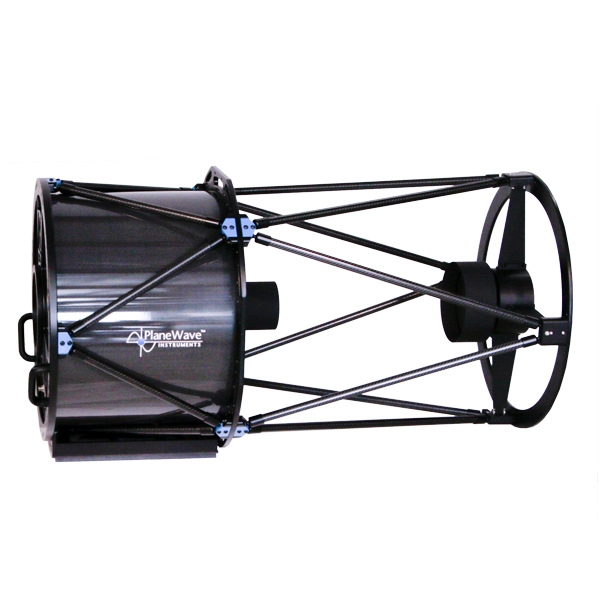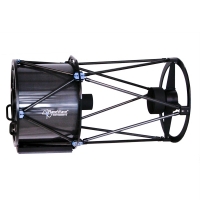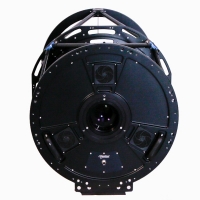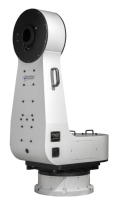PlaneWave CDK20 Telescope (f/6.8)
Price as Configured: $39,000.00
- 20-inch (508 mm) aperture
- 3454 mm focal length
- f/6.8 focal ratio
- 224 mm back focus from mounting surface
- Perfectly flat field across the entire 52mm image circle
- No off-axis coma or astigmatism
- Rock-solid fused silica mirrors with low thermal expansion
- Lightweight and rigid carbon fiber optical tube assembly

Tell us what you're looking for, and we’ll point you in the right direction. Email Us.
The CDK Optical Design
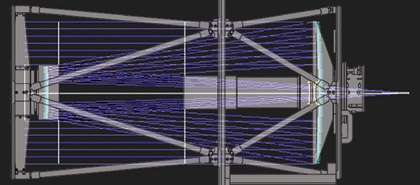
The CDK [Corrected Dall-Kirkham] telescope is based on a new optical design developed by Dave Rowe. The goal of the design is to make an affordable astrographic telescope with a large enough imaging plane to take advantage of the large format CCD cameras of today. Most telescope images degrade as you move off-axis from either coma, off-axis astigmatism, or field curvature. The CDK design suffers from none of these problems. The CDK is coma free, has no off-axis astigmatism, and has a flat field. The design is a simple and elegant solution to the problems posed above. The CDK consists of three components: an ellipsoidal primary mirror, a spherical secondary mirror and a lens group. All these components are optimized to work in concert in order to create superb pinpoint stars across the entire 52mm image plane.
Optical Performance
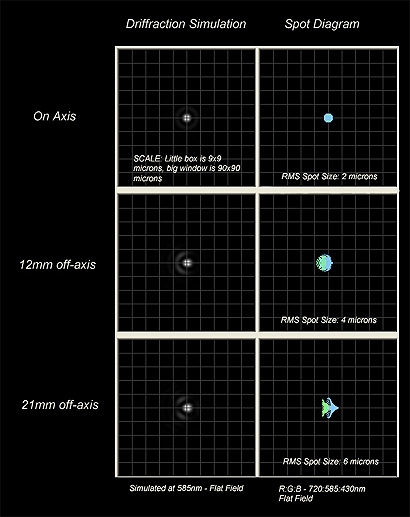 Shown are two simulations showing the CDK’s stunning performance. The first is a diffraction simulation and the second is a spot diagram. In both simulations the small squares are 9×9 microns, about the size of a CCD pixel. In the diffraction simulation the star images on axis and off-axis are nearly identical. In the spot diagram 21mm off-axis the spot size is an incredible 6 microns RMS diameter. This means stars across a 52 mm image circle are going to be pinpoints as small as the atmospheric seeing will allow.
Shown are two simulations showing the CDK’s stunning performance. The first is a diffraction simulation and the second is a spot diagram. In both simulations the small squares are 9×9 microns, about the size of a CCD pixel. In the diffraction simulation the star images on axis and off-axis are nearly identical. In the spot diagram 21mm off-axis the spot size is an incredible 6 microns RMS diameter. This means stars across a 52 mm image circle are going to be pinpoints as small as the atmospheric seeing will allow.
Both of the simulations take into consideration a flat field, which is a more accurate representation of how the optics would perform on a flat CCD camera chip. for visual use some amount of field curvature would be allowed since the eye is able to compensate for a curved field. The diffraction simulation was calculated at 585nm. The spot diagram was calculated at 720, 585, and 430nm. Many companies show spot diagrams in only one wavelength, but you cannot see the chromatic performance with only one wavelength.
Comparison: CDK vs. Richey Chrétien
The CDK design tackles the off-axis coma problem by integrating a pair of correcting lenses into a two mirror design. The beauty is that this design also corrects for astigmatism and field curvature. Because the lenses are relatively close to the focal plane (unlike the Schmidt corrector plate found in various Schmidt Cassigrain designs), and because these lenses work together as a doublet, there is no chromatic aberration. The CDK offers a wide aberration-free, flat field of view that allows the user to take full advantage of the very large imaging chip cameras in the market place today.
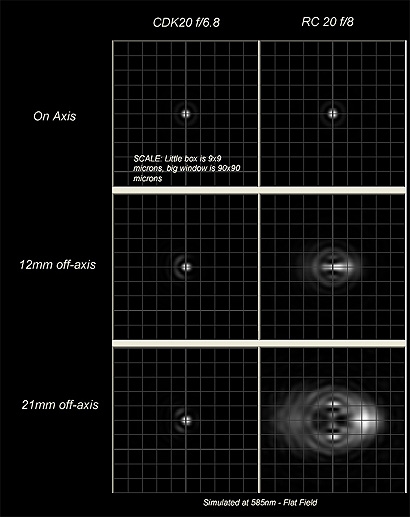 Having an aberration free telescope design means nothing if the optics cannot be aligned properly. Many Ritchey owners never get to take full advantage of their instrument’s performance because the Ritchey is very difficult to collimate. Aligning the hyperbolic secondary mirror’s optical axis to the optical axis of the primary mirror is critical in the Ritchey design, and the tolerances are unforgiving. The secondary mirror of the CDK design is spherical. It has no optical axis and so the centering tolerance of the CDK secondary mirror is comparatively huge. With the help of some very simple tools, the CDK user will be able to set the secondary spacing, collimate the optics and begin enjoying the full performance potential the instrument has to offer within a few minutes.
Having an aberration free telescope design means nothing if the optics cannot be aligned properly. Many Ritchey owners never get to take full advantage of their instrument’s performance because the Ritchey is very difficult to collimate. Aligning the hyperbolic secondary mirror’s optical axis to the optical axis of the primary mirror is critical in the Ritchey design, and the tolerances are unforgiving. The secondary mirror of the CDK design is spherical. It has no optical axis and so the centering tolerance of the CDK secondary mirror is comparatively huge. With the help of some very simple tools, the CDK user will be able to set the secondary spacing, collimate the optics and begin enjoying the full performance potential the instrument has to offer within a few minutes.
The drastic difference in performance between the CDK and the RC is apparent. The biggest component that degrades the off-axis performance of the RC is the defocus due to field curvature. In many diagrams shown by RC manufacturers, the diagrams look better than this because they are showing a curved field. This is fine for visual use because the eye can compensate for some amount of curvature of field. But CCD arrays are flat and so in order to evaluate the performance a spot diagrams and/or diffraction simulations requires a flat field as shown.

